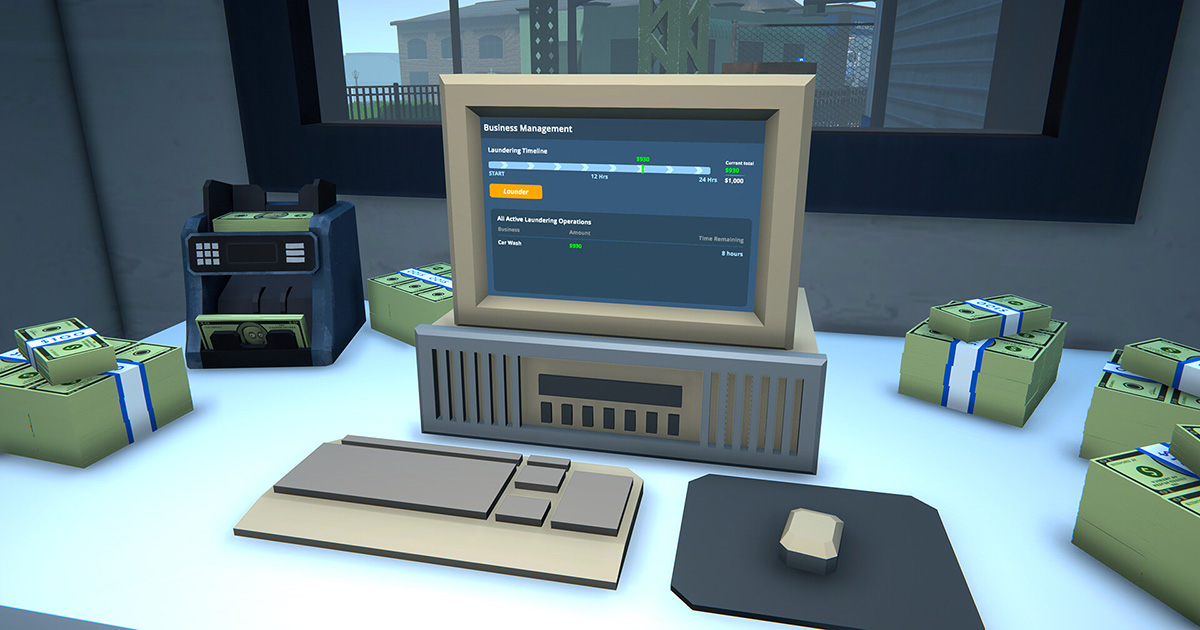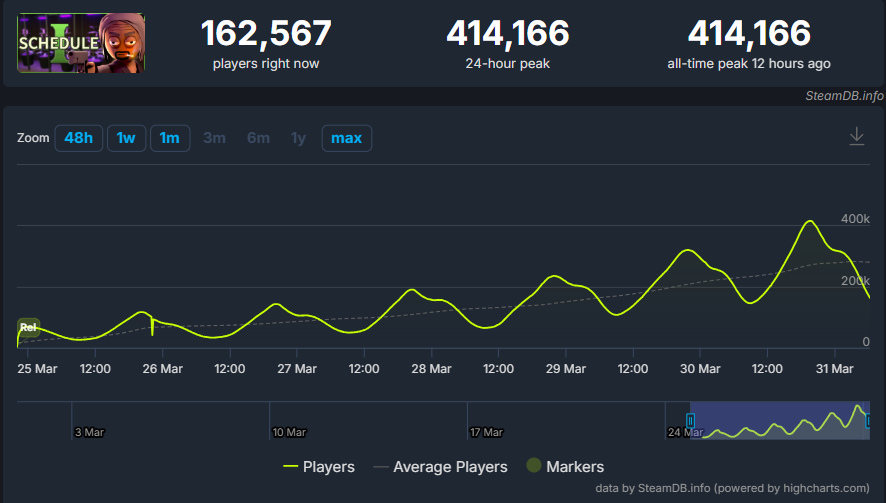Schedule I made it into the top 30 games with the highest online player count in Steam history and earned millions of dollars
The drug business simulator Schedule I from the Australian indie studio TVGS has attracted a massive audience on Steam. On the evening of March 30, its peak online reached 414,166 players.
Schedule I
As a result, Schedule I climbed to the 29th spot among the most popular games in Steam's history, surpassing the likes of Postal, Monster Hunter: World, Starfield, Destiny 2, and thousands of other projects in terms of online players.
Schedule I online in Steam
The high interest in the game has generated millions in revenue for the developers at TVGS. According to VG Insights, the gross revenue of Schedule I might be approximately $9.2 million. Gamalytic estimates it to range from $9.1 million to $61.7 million, highlighting that the game’s most lucrative markets are the USA (31.5%), Germany (12.1%), and the UK (5%).
According to analyst Simon Carless from GameDiscoverCo, Schedule I owes its success to three main factors:
1. Schedule I is an excellent example of the "first-person simulator" genre, which includes games like Supermarket Simulator and TCG Card Shop Simulator. It features a well-crafted gameplay loop, with simple and intuitive mechanics.
2. While Schedule I can be played solo, the cooperative mode adds more depth to the simulator. Moreover, the co-op feature has made the game popular among streamers.
3. Following the release of the TV series "Breaking Bad," the theme of drug selling in games and other media has become somewhat less taboo, though it remains morally controversial. This thematic line was seen in games like Drug Dealer Simulator, which is much darker compared to Schedule I.
Carless also noted that Schedule I was featured on Steam’s main page a few days ago, which could have boosted game sales.
Schedule I was released on Steam on March 25 and is currently in early access, where it plans to remain for about two years.
In Russia, the production, distribution, acquisition, storage, transportation, processing, and promotion of narcotic substances are prohibited. Their use is harmful to health.

